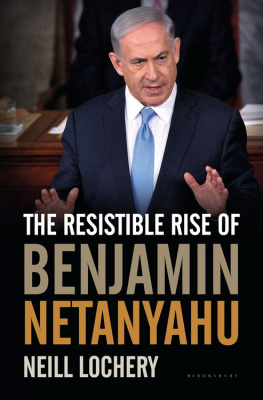Hachette Book Group supports the right to free expression and the value of copyright. The purpose of copyright is to encourage writers and artists to produce the creative works that enrich our culture.
The scanning, uploading, and distribution of this book without permission is a theft of the authors intellectual property. If you would like permission to use material from the book (other than for review purposes), please contact permissions@hbgusa.com. Thank you for your support of the authors rights.
Published by Basic Books, an imprint of Perseus Books, LLC, a subsidiary of Hachette Book Group, Inc. The Basic Books name and logo is a trademark of the Hachette Book Group.
The Hachette Speakers Bureau provides a wide range of authors for speaking events. To find out more, go to www.hachettespeakersbureau.com or call (866) 376-6591.
The publisher is not responsible for websites (or their content) that are not owned by the publisher.
Library of Congress Cataloging-in-Publication Data has been applied for.
B enjamin Netanyahu sat back on the narrow bench, the tired puffiness beneath his eyes still visible under the perpetual television makeup. The Sikorsky Sea Stallion clattered off the Hadassah hospital helipad and headed south over the Judean Desert. Wearing the rectangular reading glasses he is rarely seen with in public, he perused his daily intelligence briefing papers. But for most of the hour-long journey, he seemed lost in his own thoughts.
Forty years earlier, as a young special forces lieutenant, he would fly in such a helicopter as he led his team of commandos on missions deep within enemy territory, most of them still classified. Todays trip was public: his first visit to the construction site of the new border fence between Israel and Egypt.
It was September 2011, midway through his second term. Netanyahu had been back in power for over two years and was now facing his most significant challenge since reelection. That summer, a grassroots protest movement had begun in Tel Aviv, out of the Facebook page of a young woman. Enraged at the raising of her rent, Daphni Leef had set up a tent on Rothschild Boulevard. Thousands of young people and families had joined in, setting up their own tents in Tel Aviv and other cities.
The public anger focused on one of Netanyahus weakest pointsthe growing gap between a thin layer of businesspeople and entrepreneurs, making millions from Israels high-tech-fueled economic success, on the one hand, and, on the other, the majority, those who were struggling with rising housing and consumer prices.
Israel had weathered the global financial crisis of 20082010 relatively unscathed. Unemployment was down, gross domestic product (GDP) was up, and headlines announcing yet another sale of an Israeli start-up, for hundreds of millions or even billions of dollars, was an almost weekly occurrence. But the complaints of young middle-class Israelis, who were unable to buy their own homes and live a comfortable life without incurring crushing debt, made Netanyahu vulnerable.
The governments derisory attempts to deflect criticism, announcing housing reforms and appointing a special commission to examine the problems of the middle class, failed to arrest the plummeting popularity of Netanyahu and his right-wing party, Likud, in public opinion surveys. At least one senior minister warned that if this continues, we can say goodbye to power in the next elections.
Netanyahu was loath to change his economic policies. He believed that the economic reforms he had made in 20032005, while serving as finance minister, had saved the countrys economy during the worldwide recession. After winning the 2009 elections, he had awarded himself the title of Supreme Minister for Economic Affairs. A group of activists, dangerous left-wing anarchists funded by foreign money, in his view, would not blow his economy off-course. Netanyahu would change the national agenda instead of engaging with them.
The chopper flight south was a thinly veiled attempt to wrest back control of the news agenda. Work on the new border fence had been in progress for years, but in the wake of a terror attack launched from Egypt, in which eight Israelis were killed, Netanyahu pushed through a decision to immediately add another 1 billion shekels of funding for the 250-kilometer-long, 5-meter-high reinforced steel barrier and prioritize its construction. On his first visit to one of the completed sections, Netanyahu was taking along defense correspondents from the main media organizations, who would be less likely than other journalists to press for his response to the protests. Their presence would lend a suitable military atmosphere to the visit.
Landing in a small desert wadi hidden from the sight of any snipers who might be lurking across the border, he was taken in a convoy of bulletproof jeeps to an observation post prepared nearby. An air-conditioned tent with refreshments had been erected. Dozens of senior officers had been brought in to provide a backdrop for the prime ministers viewing of the fence. The camera crews were taken closer in to get a good view of the barrier, so they could impress their audiences with footage of the impregnable fortification. After hearing the briefings and seeing for himself the long fence snaking away to the deserts horizon, Netanyahu stood at a podium to deliver a few carefully prepared sentences and swat away the reporters softball questions.
He was in such a good mood that on the flight back to Jerusalem, he sat up front in the crew chiefs jump seat, between the two pilots, animated by the spectacular view of the Negev Desert and Israels heartland beyond. Netanyahu obviously felt that the visit to the border fence had been a success; he returned there with reporters in tow twice more over the next sixteen months.
The fence has become Netanyahus signature project, his physical version of the metaphorical Iron Wall that Zeev Jabotinsky, the spiritual father of Israels right wing, had called for in 1923 to protect the Jews from their hostile Arab neighbors.
The fence was not only meant to block terror attacksit would have the additional benefit, in Netanyahus eyes, of keeping out African migrants fleeing the impoverished and war-torn Horn of Africa. Tens of thousands had crossed the old ramshackle fence. Most had made their way to the run-down neighborhoods of South Tel Aviv, their illegal status allowing them only to scrabble a meager existence.
At the final cabinet meeting before the 2013 election, Netanyahu proudly announced that as a result of building the fence, we have totally stopped the entry of infiltrators to Israels cities. Over the past seven months, zero infiltrators have entered our cities. It was one of the greatest engineering feats ever achieved in the state of Israel. Israel, he said, had the right to control its bordersseemingly unaware of the irony that he had spent his entire political career trying to ensure that Israel did not have clearly defined or internationally recognized borders.
Western countries have not had a particularly stellar record of dealing with the influx of migrants escaping war and poverty in recent years. But most countries prefer keeping the waves of immigration at bay by following the measures already in place. In Netanyahus Israel, the Iron Fence, for many, is a source of pride. With the election of US president Donald Trump, justification for the fence seemed even more solidit became a model for what the United States might erect on its border with Mexico.










